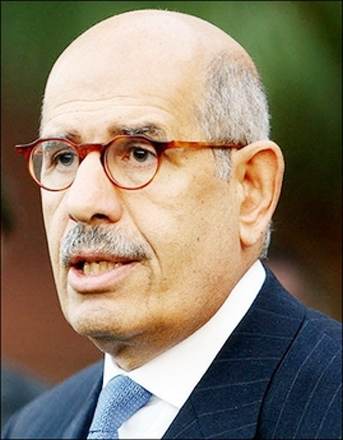Egyptian opposition figure Mohamed ElBaradei said in an interview published Tuesday that political change in his native country was inevitable, particularly after the overthrow of the Tunisian president, DPA reported.
"It is inevitable. Change must come," the former head of the International Atomic Energy Agency (IAEA) told Austrian press agency APA in Vienna, where he lives.
His comments come on the day that two men in Egypt reportedly set themselves ablaze, just one day after a third man lit himself on fire in front of Egypt's parliament, in what appear to be copycat acts of Tunisian Mohamed Bouazizi.
Bouazizi set himself on fire to protest high unemployment, triggering widespread unrest in Tunisia that lead to the ouster of president Zine el-Abidine ben Ali last week.
ElBaradei reiterated his calls for a boycott of Egypt's presidential elections, slated for sometime this autumn. He has been outspoken in his criticism of elections in Egypt, pointing to widespread allegations of irregularities and vote rigging.
He also said that Egypt has seen no changes as of yet towards more democracy from what he called a one-party system.
But he said that Egyptians, including himself, "are trying with peaceful means" to bring about change.
In Egypt, 1 million people have signed a petition for more democracy, ElBaradei claimed.
He said that this was one way to put pressure on the regime of President Hosny Mubarak, who has ruled since 1981.
The Nobel Peace laureate repeated his stance that he would not run for president as long as the government-controlled legislature holds the power to nominate candidates.
In comments on Iran's nuclear programme, the former IAEA chief said, "There is too much hype in this discussion."
He concurred with a US intelligence assessment that Iran stopped nuclear weapons development in 2003, but he allowed that Tehran's civilian nuclear programme gives it the ability to quickly develop such arms.






